The European Commissioner for Economy and Productivity, Implementation and Simplification, Valdis Dombrovskis, assured this Friday at the Forum Europa in Brussels that the EU is committed to the technological and green transition, while trying to simplify regulation to boost competitiveness.
Dombrovskis pointed out at a breakfast briefing organised by New Economy Forum in the EU capital that one of the great challenges of the European Commission is to reduce the regulatory burden without giving up objectives such as the green and technological transition and, of course, without giving up the rights of its citizens and workers. Preserving our prosperity and our security leaves us no other option, he said in his speech.
He recalled that the EU's Competitiveness Compass has set itself the goal of reducing the administrative burden for companies by at least 25% and for SMEs by at least 35%. In this regard, he indicated that the European Commission is aware, as the Draghi report also pointed out, that bureaucracy is hindering European competitiveness and leaving the continent behind in relation to major powers such as the United States and China.
First we would need to make the EU a simpler place to grow in innovation, a better place to invest and do business cheaper, with cheaper energy costs and less regulatory burden, he said. The Commissioner said that Europe is already addressing decisive changes in its policies in this regard and assured that the Commission is committed to achieving simplification.
Dombrovskis clarified that this simplifying agenda is covering all sectors and each commissioner is responsible for his area. To this end, representatives from each sector are being asked to analyse what is working, what is not, or what needs to be strengthened.
Dombrovskis said that Europe wants European champions and companies that compete internationally and admitted that European competition rules sometimes create problems, so the right balance must be found.
However, the Commissioner stressed that reducing the administrative burden for European companies to compete internationally and be productive will not imply deregulation. We are not engaged in deregulation and we will not enter into a deregulatory race, he warned. Simplification is very important for our competitiveness, strength and industrial leadership, he added at another point in his speech.
Furthermore, he guaranteed that any step towards regulatory simplification will be done without losing sight of European values, its labour and social standards, and its international commitments. In this regard, and in a context of trade tension with the United States, Dombrovskis stressed that the EU is an open economy in which the percentage of trade is important.
The Commissioner was moderately optimistic about Bulgaria joining the euro in January 2026. He commented that he recently met with the Bulgarian authorities, who are working very intensively to achieve this goal.
One of the criteria for accessing the euro is to maintain price stability, with an inflation rate that for one year does not exceed by more than 1.5 that of the three best-performing countries in the euro zone, according to community standards. It is falling and approaching the reference values, commented the commissioner.
Regarding public finances, another of the requirements, Bulgaria has also already presented a structural plan within a fiscal framework.






